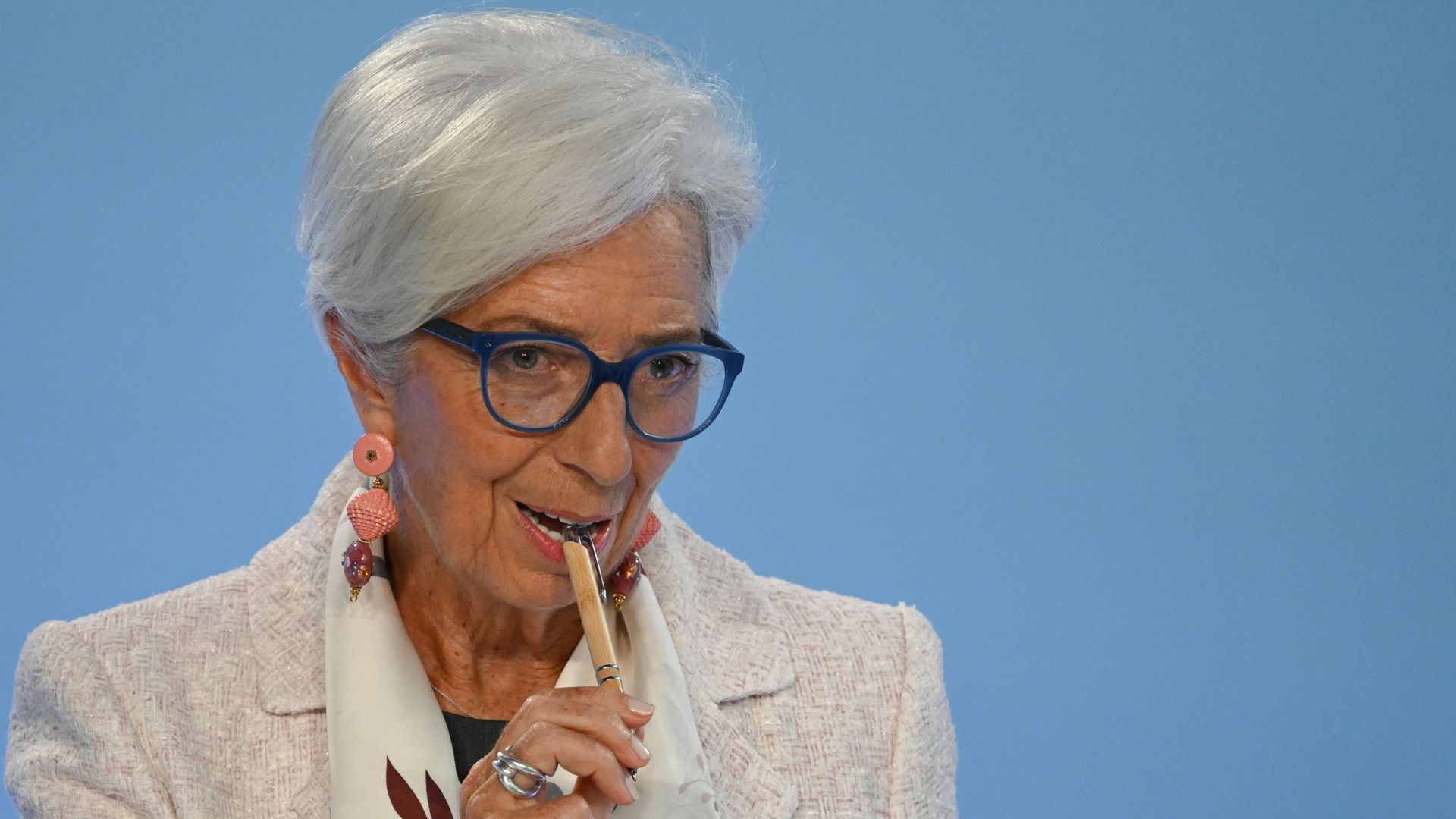Sep 14, 2023 - Economy
European Central Bank raises interest rates again, warns about economic slowdown
Add Axios as your preferred source to
see more of our stories on Google.

European Central Bank president Christine Lagarde speaks at a press conference in July. Photo: Arne Dedert/Picture Alliance via Getty Images
